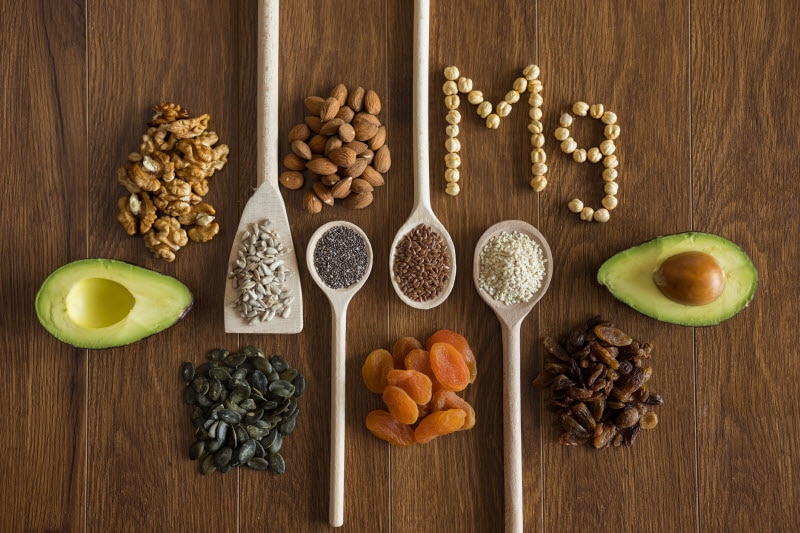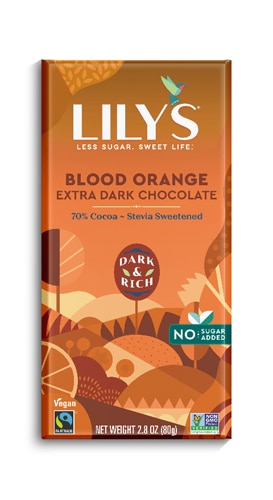[vc_row][vc_column][vc_column_text]You may have heard about magnesium's potential to help with stress, relax at the end of a long day and fall into a deep, restful sleep.
† But these functions are secondary to magnesium's crucial role in your health. Magnesium is a vital and abundant mineral in your body, particularly your bones. This nutrient is essential for several bodily functions and is primarily obtained through diet or supplementation.

Magnesium glycinate, in particular, has become a social media health hero. It's gained popularity from content creators claiming they've overcome insomnia and scored incredible sleep with help from a supplement.
† Keep reading to find out more about magnesium glycinate, why we need magnesium in general, and how to get it.
What is the function of magnesium?
Magnesium is needed for
several processes in the body, including blood pressure, nerve function, blood sugar regulation, bone formation, energy metabolism, DNA synthesis and more. We mostly get it from food, including green vegetables, beans, dairy, nuts and
seeds.
Reports indicate that
about half of adults in the United States do not get enough magnesium through their diet. Still, it would take a significant and prolonged deficit for a
deficiency to become a serious health concern. However, you might feel fatigue, nausea, weakness and sleep disturbances if you lack magnesium.
Magnesium is required for over 300 enzymatic processes in the body that help regulate reactions, including:
- Nerve function
- Bone growth, repair, and development
- Protein synthesis
- Muscle function and contractions
- Heart rhythm
- Calcium and potassium transportation
- Blood sugar control
- Regulating blood sugar
- Energy metabolism
- DNA synthesis
- Synthesis of the antioxidant glutathione
What are the different magnesium types?
At least 11 types of magnesium are available in supplement form and in foods, or applied topically. Sometimes a specific type of magnesium will be best for a particular condition or need, and each has pros and cons, including how well the body can utilize and absorb each type. A few of the most common types of magnesium include:
- Magnesium citrate: a form of magnesium found in constipation remedies.
- Magnesium lactate: this is a form naturally produced in your muscles and blood cells
- Magnesium oxide: often used in over-the-counter treatments for relieving constipation, heartburn and stomach upset
- Magnesium chloride: found in salt water and is a popular choice for baths or foot soaks.
- Magnesium aspartate: an easily absorbed form of magnesium used as a dietary supplement.
- Magnesium taurate: a combination of magnesium ion and the amino acid taurine taken as a supplement.
- Magnesium sulfate: commonly known as Epsom salts and used in baths and foot soaks. It is a combination of magnesium, sulfate and oxygen.
- Magnesium glycinate: a combination of the amino acid glycine and magnesium.
What is magnesium glycinate?
Magnesium glycinate is a combination of the mineral magnesium and the amino acid glycine, sometimes called bis-glycinate. Your body produces glycine naturally, but you also obtain it from food. It is both an
amino acid and a neurotransmitter, as it helps in the production of the feel-good hormone serotonin. Serotonin helps support mood, sleep and cognitive functioning.
Glycine is a building block for specific proteins, such as collagen, which provides structure to muscles, connective tissues, bones and skin. Additionally, glycine helps with nerve impulse regulation in the central nervous system and clears certain toxins by binding with them for elimination.
Magnesium glycinate is highly bioavailable since binding magnesium with glycine improves its absorption rate and is considered more gentle on the stomach.
† This means you are less likely to experience side effects, including stomach upset or loose stools.
†
Magnesium glycinate is
chelated, which improves its absorbability in the gut and can be used in the body better than other forms, which might be excreted more readily. Chelation simply means that the mineral is bound to another organic or amino acid substance. In this case, magnesium is attached to the amino acid glycine.
How to take magnesium glycinate
Magnesium glycinate is absorbed and used in the body differently depending on the type of supplement you choose. It can be taken as a powder, capsule or liquid with or without food.
The best way to remember your magnesium glycinate supplement is to pair it with another habit or activity that you do every day. For instance, many people like taking magnesium glycinate at night right before bed. Others may pair it with a specific meal or add powder to a daily beverage. Highly absorbable powdered forms such as
Codeage Magnesium Glycinate Powder are easy to add to water, juice or a smoothie.
The recommended daily intake for magnesium is 420 mg for men and 320 mg for women daily. The amount that you need depends on why you're using it, and any advice that your health care provider gives you. Too much magnesium may lead to loose stools, although this may be less likely with magnesium glycinate.
†
Potential magnesium glycinate side effects
Staying within the recommended dose will limit any
side effects of taking magnesium glycinate, which is generally considered safe.
† Since your kidneys eliminate any magnesium that your body doesn't use, it is rare to experience ill effects from taking too much. However, if you have any kidney issues or other medical conditions, you should speak to your healthcare provider before taking a magnesium supplement.
Taking too much of a
magnesium supplement may cause nausea, diarrhea or stomach cramps. It can also interfere with other medications by affecting the absorption rates. Magnesium can also bind to antibiotics which limits their effectiveness. So, space your magnesium supplement from your antibiotic for at least 2 hours.
†
If you are on blood pressure-lowering medication, you should monitor your blood pressure and speak to your healthcare provider when taking magnesium since it can reduce blood pressure.
†These statements have not been approved by the Food and Drug Administration. These products are not intended to diagnose, treat, cure or prevent disease.[/vc_column_text][/vc_column][/vc_row][vc_row][vc_column][vc_text_separator title="Featured Products" border_width="2"][vc_row_inner equal_height="yes" content_placement="middle" gap="35"][vc_column_inner width="1/3"][vc_single_image image="167091" img_size="full" alignment="center" onclick="custom_link" img_link_target="_blank" css=".vc_custom_1685477289963{padding-right: 7% !important;padding-left: 7% !important;}" link="https://www.vitacost.com/codeage-magnesium-glycinate-powder-unflavored-bisglycinate-magnesium-chelated-mineral"][/vc_column_inner][vc_column_inner width="1/3"][vc_single_image image="167092" img_size="full" alignment="center" onclick="custom_link" img_link_target="_blank" css=".vc_custom_1685477491759{padding-right: 7% !important;padding-left: 7% !important;}" link="https://www.vitacost.com/codeage-multi-collagen-protein-magnesium-glycinate"][/vc_column_inner][vc_column_inner width="1/3"][vc_single_image image="167090" img_size="full" alignment="center" onclick="custom_link" img_link_target="_blank" css=".vc_custom_1685477419937{padding-right: 7% !important;padding-left: 7% !important;}" link="https://www.vitacost.com/codeage-liposomal-magnesium-glycinate-mineral-supplement-chelated-magnesium-bisglycinate"][/vc_column_inner][/vc_row_inner][/vc_column][/vc_row]
 Magnesium glycinate, in particular, has become a social media health hero. It's gained popularity from content creators claiming they've overcome insomnia and scored incredible sleep with help from a supplement.† Keep reading to find out more about magnesium glycinate, why we need magnesium in general, and how to get it.
Magnesium glycinate, in particular, has become a social media health hero. It's gained popularity from content creators claiming they've overcome insomnia and scored incredible sleep with help from a supplement.† Keep reading to find out more about magnesium glycinate, why we need magnesium in general, and how to get it.



